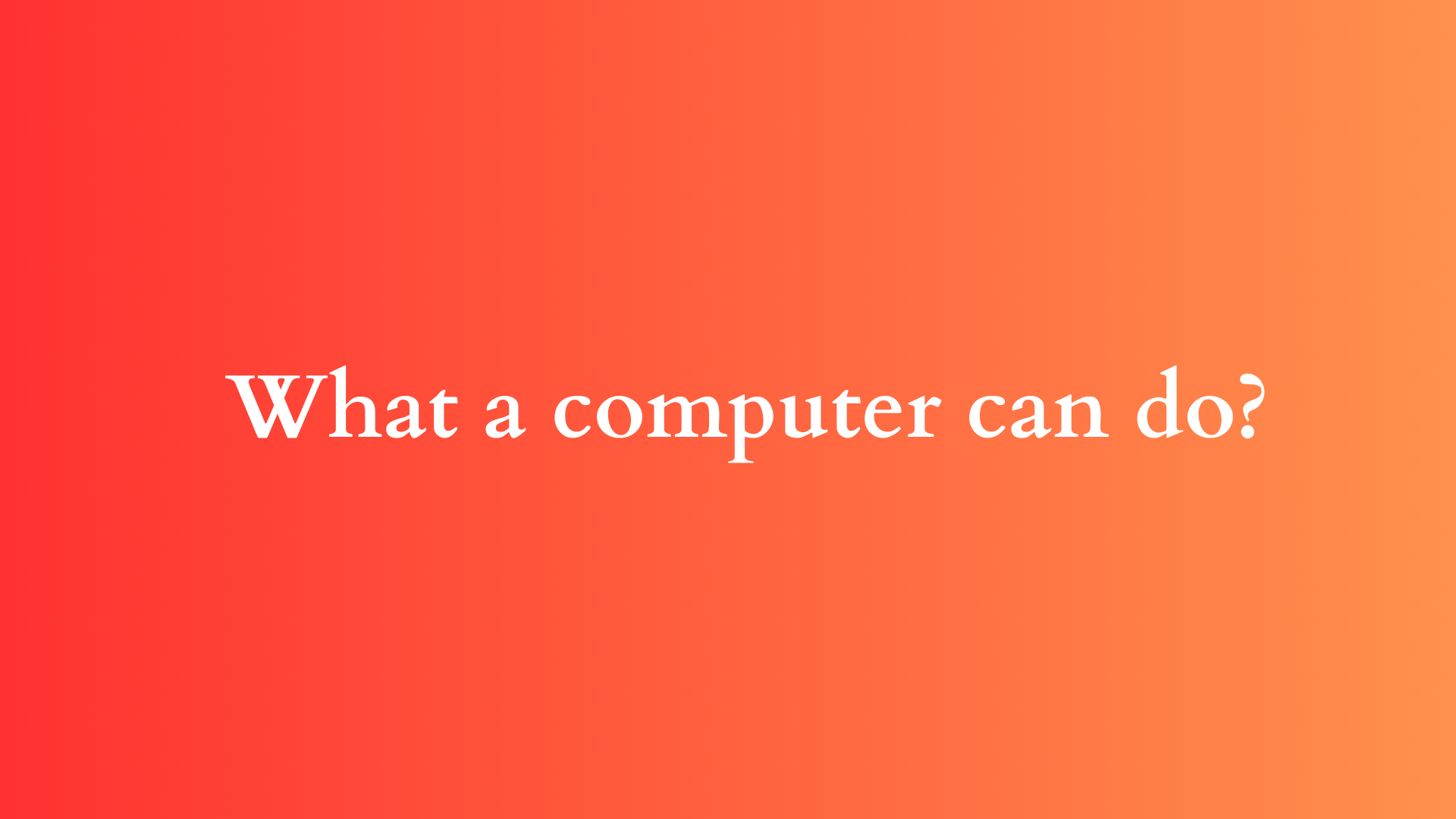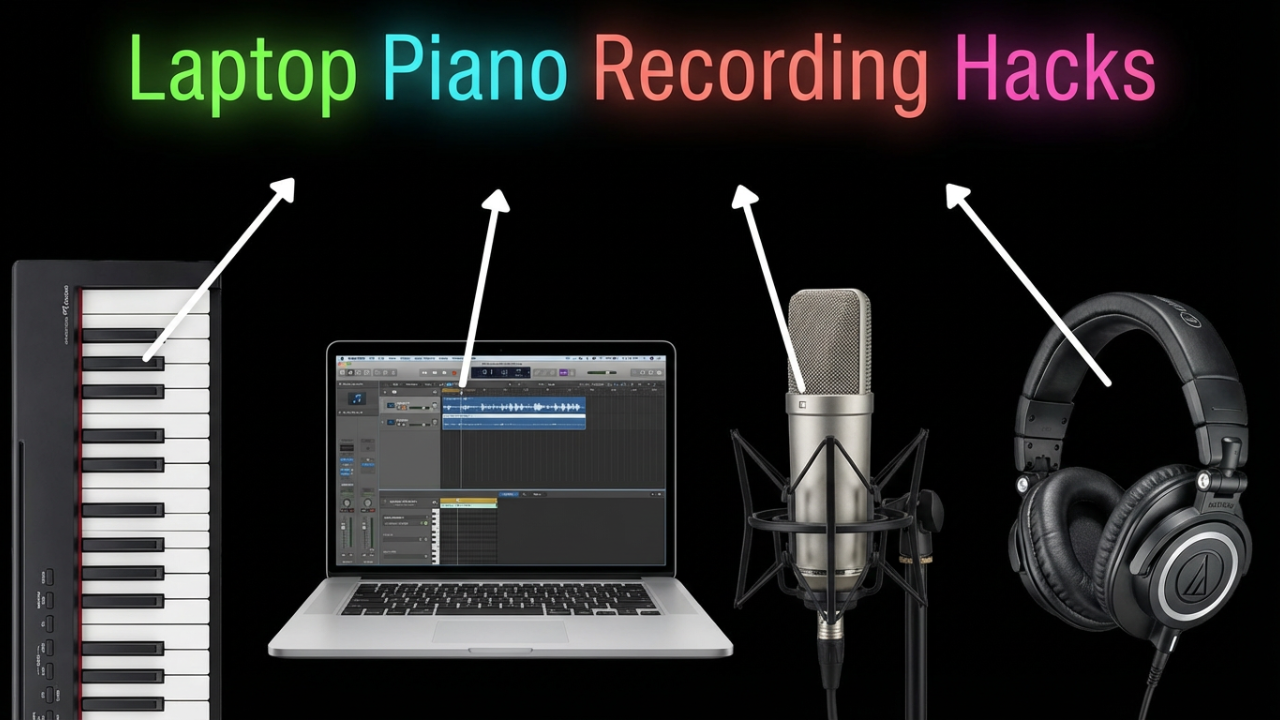The Multifaceted Capabilities of Computers: A Comprehensive Exploration
In an age defined by rapid technological advancement, the computer has emerged as one of the most significant inventions in human history. Originally conceived as basic machines for mathematical calculations, modern computers have evolved into versatile tools that can perform a multitude of tasks across various domains, significantly impacting our everyday lives. This blog post delves into the extensive capabilities of computers, examining their roles in various fields and the underlying technologies that empower these functionalities.

1. Data Processing and Information Management
At the core of what a computer can do lies its unparalleled ability to process and manage data. Whether it’s handling vast databases of information in business settings or analyzing user-generated content on social media platforms, computers have transformed the way we collect, store, and interpret data.
Data Analytics and Business Intelligence
Organizations leverage computers for data analytics and business intelligence, which enable them to extract actionable insights from large datasets. Advanced algorithms and machine learning techniques allow computers to identify patterns and trends that human analysts might overlook. These insights drive informed decision-making, improve operational efficiency, and enhance customer experiences.
Database Management Systems
Computers also facilitate the management of databases through sophisticated database management systems (DBMS). These systems enable users to create, retrieve, update, and delete data in structured formats efficiently. With the advent of cloud computing, database systems become even more robust and accessible, allowing users to manage large datasets across multiple geographical locations with ease.
2. Automation of Tasks
One of the most transformative capabilities of computers is automation. By executing routines and processes without human intervention, computers save time and reduce errors across multiple industries.
Robotic Process Automation (RPA)
In the business realm, Robotic Process Automation minimizes repetitive tasks. RPA software bots handle mundane activities such as data entry, invoice processing, and compliance checks with greater speed and accuracy than human operators. This shift not only streamlines operations but also allows employees to focus on higher-value tasks that require creativity and problem-solving skills.
Smart Manufacturing
The manufacturing industry has also embraced automation through Computer Numerical Control (CNC) machinery and industrial robots. These technologies enable precision manufacturing, where computers control machinery to create complex components with minimal human oversight. The integration of IoT (Internet of Things) devices further enhances this automation, allowing for real-time monitoring and optimization of manufacturing processes.
3. Communication and Connectivity
Computers have revolutionized the way we communicate and connect with others around the globe. The rise of the internet, facilitated by computer technology, has made instant communication a reality.
Email and Instant Messaging
Email, one of the earliest online communication tools, has become indispensable in personal and professional communication. Instant messaging and collaborative platforms such as Slack or Microsoft Teams have further altered the communication landscape, allowing for real-time interactions among team members regardless of their physical locations.
Social Media Platforms
Beyond professional settings, computers enable seamless connections through social media platforms. These platforms have fundamentally changed how individuals interact, share information, and build communities. From Facebook to Twitter, computers allow users to engage with friends, family, and even brands, creating a rich tapestry of digital social interactions.
4. Creative and Artistic Endeavors
The capabilities of computers extend into the realm of creativity and artistic expression, providing tools that empower artists, designers, and filmmakers.
Graphic Design and Digital Art
With software programs such as Adobe Photoshop and Illustrator, computers enable graphic designers to create stunning visuals, manipulate images, and produce digital art. These tools equip artists with capabilities that were once limited to traditional mediums, allowing for an unprecedented level of experimentation and creativity.
Music Production
In music production, computers serve as digital audio workstations (DAWs), allowing musicians to compose, record, and produce music with remarkable precision. Software such as Ableton Live or Logic Pro X provides extensive libraries of sounds, effects, and editing tools, making the music creation process more accessible than ever.
5. Scientific Research and Innovation
Computers are indispensable in scientific research, enabling researchers to conduct complex simulations, analyze experimental data, and explore new frontiers of knowledge.
Computational Modeling
In fields like physics, chemistry, and biology, computers are used for computational modeling, which allows scientists to simulate real-world phenomena or molecular interactions. These models provide valuable insights, leading to breakthroughs in understanding complex systems, such as climate change or disease mechanisms.
Big Data and Genomics
The advent of big data technologies enables the analysis of vast amounts of information generated in scientific research. In genomics, for example, computers facilitate the processing of complex DNA sequences, leading to advancements in personalized medicine and targeted treatments.
6. Education and E-Learning
Education has undergone a profound transformation through the integration of computer technology. The ability of computers to deliver information and facilitate learning experiences has reshaped both traditional and online education.
Online Learning Platforms
With the proliferation of online learning platforms, such as Coursera and Khan Academy, students now have access to a wealth of knowledge from prestigious institutions around the world. Computers enable interactive courses that incorporate multimedia content, quizzes, and discussion forums, fostering an engaging learning environment.
Educational Software
Furthermore, educational software tailored to various subjects allows for personalized learning experiences. Programs such as Duolingo for language learning or MATLAB for mathematics create interactive educational scenarios that adapt to individual learning paces and styles.
Conclusion
The capabilities of computers are vast and continuously evolving. From data processing and task automation to enhanced communication and creative endeavors, computers have become integral to modern life. As technology advances, we can expect computers to grow even more sophisticated, paving the way for innovations that will challenge our understanding of what is possible.
In this digital age, understanding the capabilities of computers not only empowers us as users but also inspires future generations to unleash their potential in harnessing this transformative technology. Whether in business, science, art, or education, the implications of what a computer can do are profound, signaling a future rich with possibilities.
Shop Now






